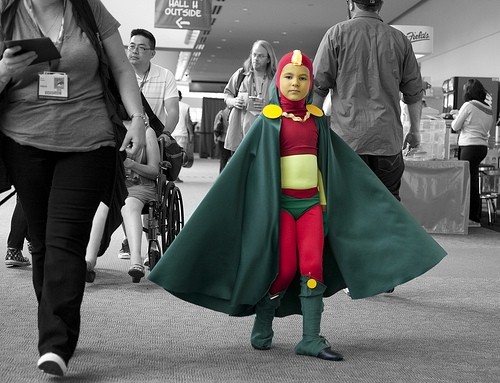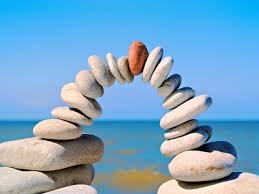Generating and Developing Theme in Your Novel
We’ve been examining the fourth crucial support of your novel—theme with a heart. I noted in these last two posts that theme is more important than plot in terms of supporting the whole of your story. I called plot a vehicle for your theme. It’s also the vehicle to showcase your concept, protagonist’s goal, and central conflict. In other words, try to think of plot as functioning different from the other elements in your story. We will take a look at plot next as one of the pillars in novel construction, but it’s the structuring of the plot itself that we’ll focus on. It speaks to the framework of your “building” rather than the actual materials, if that makes sense.
Theme: the Unsung “Hero” of Novels
So, let’s return to theme for another look. When I started contemplating what to write about this pillar, I realized I didn’t have a whole lot to say. Theme isn’t often discussed as a crucial element in a novel, but to me it is, and is mostly overlooked or taken for granted. Do writers just assume theme will just show up and needs no introduction? I’m not sure.
When I searched online for articles about theme in novels, I could hardly find a thing. And that disturbed me. I’m all about theme, and even when I get an idea for a new novel and a scenario or concept comes to mind, I instinctively make for the theme. In fact, the theme is my litmus test for whether a novel idea has potential. If it’s just a cool idea but I can’t connect it to a meaningful theme, out it goes. I usually don’t have that problem, though, because themes are what are the germs of stories for me, so they usually spark the idea.
How to Come Up with Themes
So what are some ways you can come up with themes for your story? Or come up with a story with a great theme? One way, as I mentioned in a previous post, is to take a look at your characters and see what they are passionate about. But what if they aren’t passionate about anything? If that’s the case, you haven’t worked hard enough with your idea to create a protagonist with a goal. And for that character to want to strive for a goal, she has to be passionate about something. Find her passion and you have the germ for the themes.
Have you worked out the central conflict in your story—something that opposes your character? That conflict will present your themes, as those opposing your protagonist have an agenda and core need (passion . . .) and most likely will take some opposing side or view on an issue or behavior or belief than your protagonist.
Go back to the questions I posed in the first post on theme. Ask yourself, “What is my novel about?” Then ask yourself, “What is my novel really about.” Roll up your sleeves and do some digging. There is a lot under the surface of your concept that you can mine for theme.
Another way that helps me find theme is by asking questions. Why, why, why. This speaks to the heart of motivation. Mind mapping themes is a great exercise. Here’s a post that shares a bit on how I mined themes for my novel Conunudrum. With any developing concept you’re considering fleshing out into a full novel, ask lots of questions to arrive at themes that excite you.
Next week I’m going to give you a glimpse of how my wild mind works when it comes to brainstorming an idea. I’m hoping that might give you some ideas of your own for coming up with and developing the themes in your novel. But for now, any thoughts on theme? Share them in the comments!
Inspection checklists:
Inspection Checklist 1-concept with a kicker
Inspection Checklist 2-protagonist with a goal
Inspection Checklist 3-conflict with high stakes
Photo Credit: Parker Knight via Compfight cc












I’m beginning to see how something I didn’t think was important, IS important after all.
I just wanted to thank you for all your posts. I have really learned a lot and have totally changed the start of my novel to rip out all the backstory.
It is hard to wait a week between posts, but I’m managing it.
I have looked back through previous posts and on one of the posts on brainstorming, you mentioned that you didn’t know of any software that allows you to do a storyline for each character the way that you do on paper. I know of one called StoryLines Fiction Structuring Software 1.02 by Anthemion Software. It is a free program.
Also, I use a free program to write my novels called yWriter 5. It splits your novel into chapters and scenes, which makes it so much easier to find parts of your novel to edit. It has extra places to put descriptions of characters, items and locations to help with developing them. It can do more, but if you go to http://www.spacejock.com, you will find out more. The software was developed by an author, so he knows what is needed by authors. I found it so much better than Word, especially when editing.
I hope this helps some of the writers that read your blog posts. Maybe you might like it too, especially yWriter, but I have a feeling you like your paper methods too much for your StoryLines. 😉
Thanks for sharing that info with the blog readers!
Hi again.
I think the website I looked at for info about StoryLines is wrong. I saw that it has a free trial on another website and that it is $79.
Sorry about that.
yWriter 5 is DEFINITELY FREE! I know that for a fact.
You might be interested in https://hiveword.com. It’s free and lets you develop plots, characters, setting, etc. And it saves it all online. You don’t need to download anything. I haven’t played with it much, but it seems pretty good, especially because it’s free.
I can’t speak for all writers, but I seem to work from the “cool idea” forward. I’d love to be able to start with a theme and work toward the bones of a novel. I don’t usually ask “why” or “what if” until I’m working on my plot. This post was interesting for me to see that you do it the opposite way from how I do. I can’t wait to see your next post; I’m intrigued by this. Theme has always been the most difficult part of the writing for me. Learning more about how you work with themes in your writing helps me a lot. Thanks.
Thanks, Staci. Funny, theme to me is the easiest. But I really struggle with my climaxes of my novels. We all have certain facets of novel writing that are hardest, for sure. I think a lot of people struggle with creating rich, believable characters.